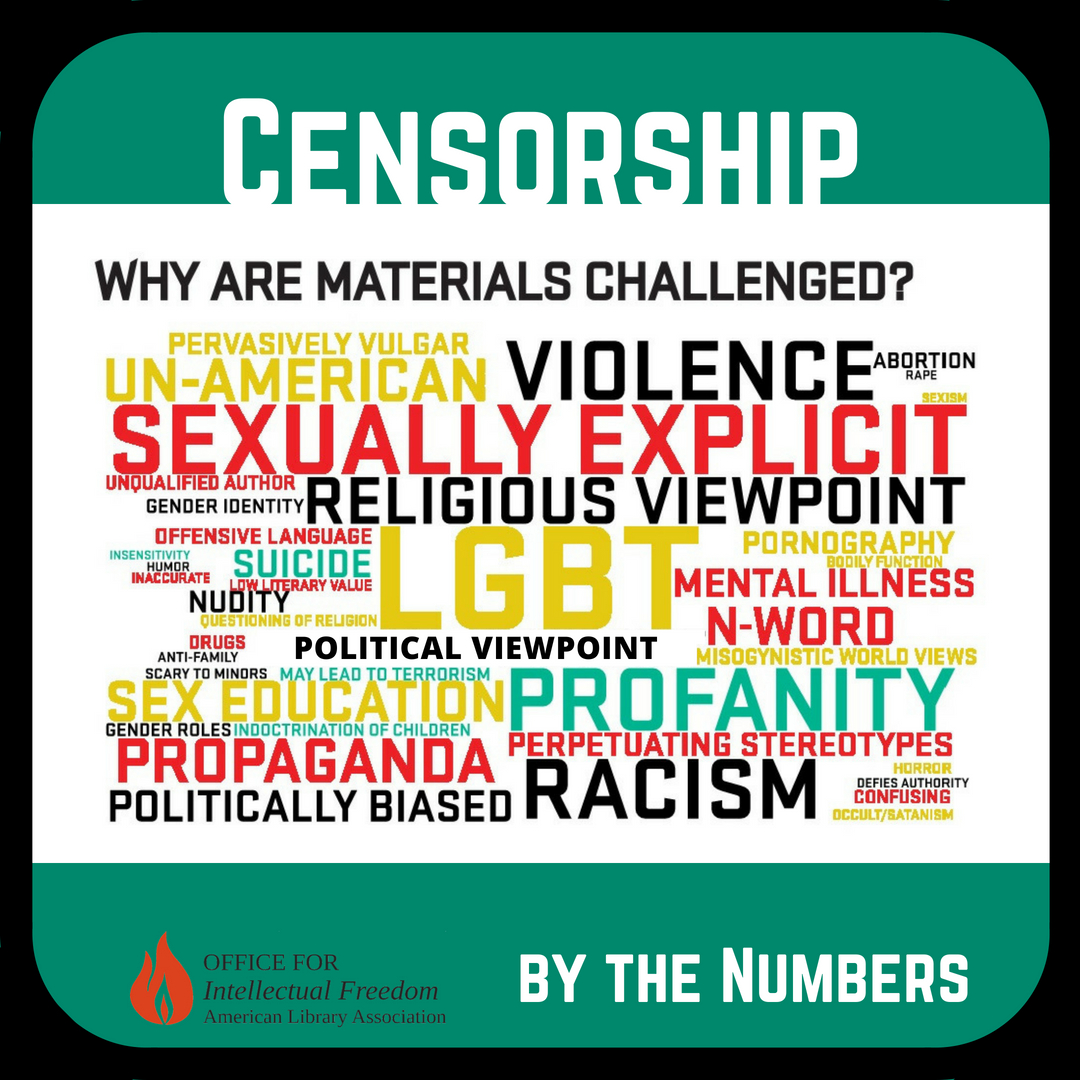
By Alec Deyong, Contributing Writer
Featured image from Freedom to Read Foundation
A man rents several books from a public library. These books, however, represent an idea that he doesn’t agree with. So, why is he renting them? Well, to burn them on a public forum for all to see. This is an archaic but familiar concept to most that might make you think of the Nazi book burnings and other malicious acts of censorship. This particular event though is not a story from our distant past—this happened just last year in Orange City, Iowa and was streamed on Facebook Live.
Burning books has long been a symbol of censorship and oppression by restricting information. In modern times, the practice is seen almost exclusively in movies and, ironically, in history books. This might lead many to assume that this act of suppressing information is no longer relevant, but just because we don’t see it, doesn’t mean it isn’t happening.
While the literal act of burning books is not used often—the exception being our overzealous friend from Iowa—there are still those who try to keep the masses from accessing certain texts, usually through banning them. Jennifer Funk, McKendree’s own Public Services Librarian, recalled the history of banning and burning books, as well as some modern instances of these practices. She relayed in this week’s Brown Bag that “we think these things don’t happen,” but we just don’t hear about them and it is something that we should be aware of.
Her Brown Bag was inspired by “Banned Book Week,” which was started by the Office of Intellectual Freedom. The week takes place annually in September. The purpose is to bring attention to books being banned, primarily in America.
Jennifer spent the majority of her time sharing stories books being “challenged,” which is the process by which a book gets banned in modern times. From books that depict non-traditional families to the Harry Potter series, books are challenged across the country, usually because the challenging party doesn’t agree with what the book depicts, much like the Iowan man that rented those books from a local library. The man was a religious activist and the books he rented to burn were books that depicted homosexual relationships.
On the other end of the process, the books that are most often challenged and banned, according to Jennifer, are written by or about “people from underrepresented groups.” One place where these events seem to be more common are in schools. Several of the occurrences shared by Jennifer took place when parents thought “my children shouldn’t read this and neither should anyone else’s.”

One instance of this was when a Catholic college professor used a book written by a Catholic-turned-Atheist. The professor was removed from his position as chair of the department and and the book was removed. This happened after the president of the college originally came out in support of the sharing of information. He later backtracked and reprimanded the professor.
An example of underrepresented groups being targeted for the challenges is when several different groups challenged Angie Thomas’s The Hate U Give. Her book was challenged under the grounds of being “indoctrinating.” Jennifer said that books such as this are also often challenged for misleading reasons. When a book is challenged to be taken out of a high school for foul language, Jennifer implied that it is often just an excuse to challenge the book. As Jennifer sarcastically put it, “because high school students don’t know foul language.”
Jennifer’s Brown Bag presentation brought light to an issue that should be much more visible than it is. The suppression of information is still going on today, even in our country where we hold our First Amendment and the freedom of information in such high regard. Banned Books Week is an annual celebration of the freedom of information and one that should perhaps be recognized on a much wider scale throughout the year.
This is what I’m getting when I try to link to review
Oops! That page can’t be found.
It looks like nothing was found at this location. Why not try searching for something?
Thanks for letting us know. In the past links have worked perfectly. We’ll see about getting this fixed.